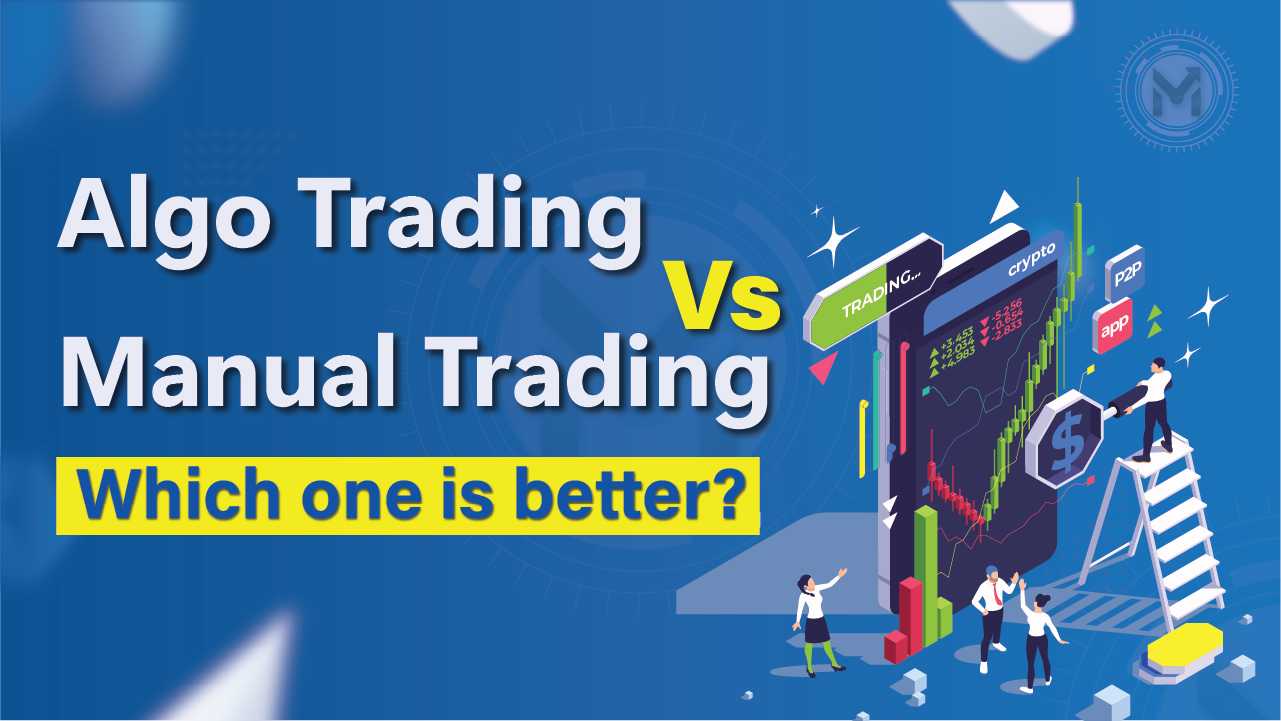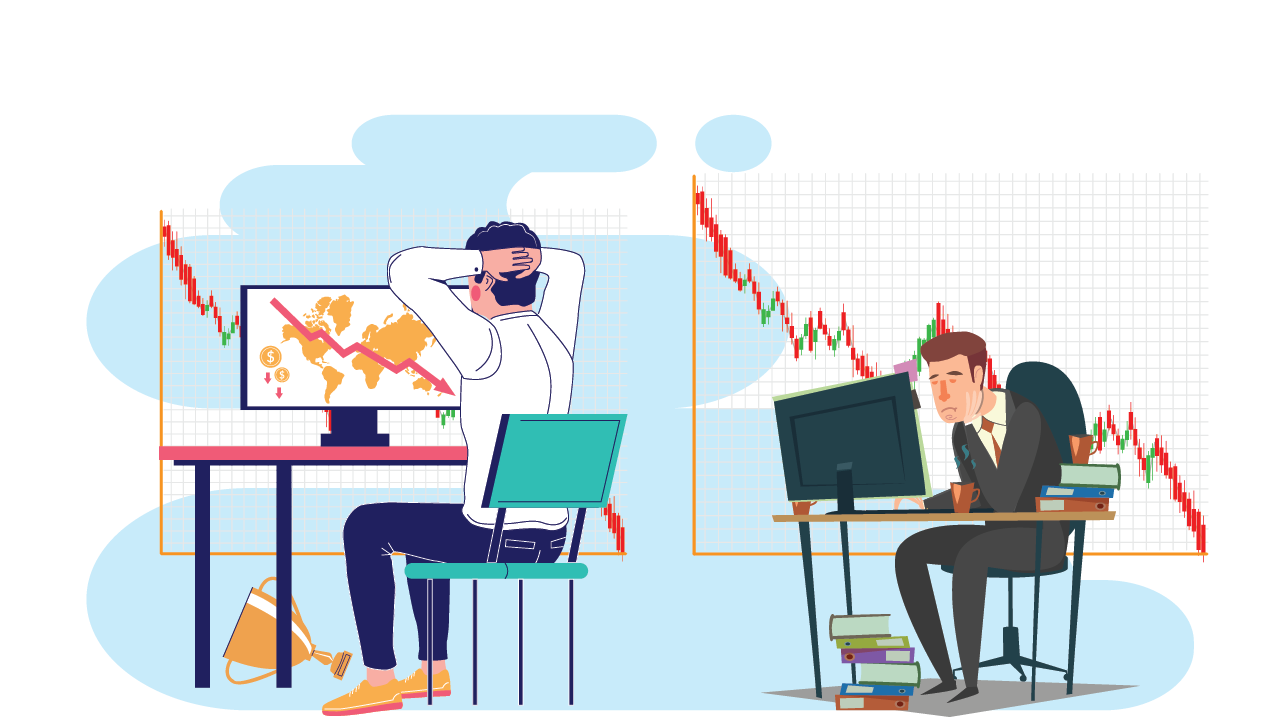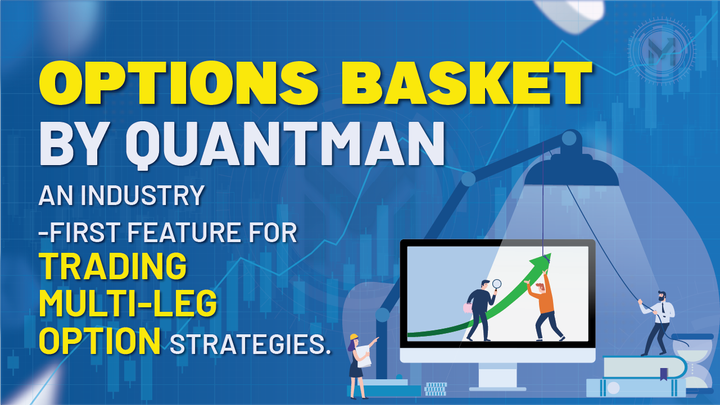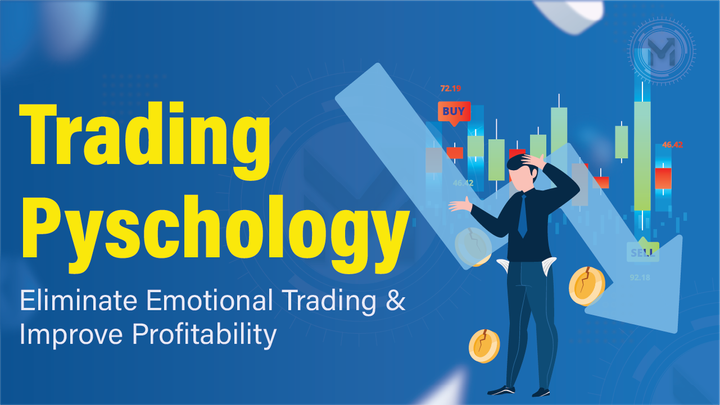Algo Trading Vs Manual Trading – Which One is Better?
This blog highlights the key differences between Algo Trading and Manual Trading. You'll discover which method is superior in today's trading environment. Additionally, you'll learn about QuantMan, the top Algo Trading platform known for its features and trade execution.

Are you interested in delving into the key differences between manual trading and algorithmic trading? Would you like to gain insights into which method might provide a competitive edge in achieving trading success? If so, this blog is tailored to address your inquiries.
In today's fast-paced and ever-evolving landscape, the integration of artificial intelligence (AI) within financial markets has become increasingly prominent. This integration has significantly transformed the financial sector by reducing human error and streamlining the trading process, thereby greatly enhancing overall efficiency. Consequently, traders are eager to discern whether manual or algorithmic trading yields greater success.
In the following section, we will break down the distinctions between manual trading and algorithmic trading by exploring a variety of relevant factors. Upon reading this blog, you will end up pinpointing who is the winner of the competition - algo trading vs manual trading.
Manual Trading: The Traditional Approach
Manual trading refers to the conventional method of buying and selling financial instruments based on a trader’s judgment, experience, and chart analysis. It’s how trading has been done for decades, and many still swear by it.
Advantages of Manual Trading
- Human Intuition: Experienced traders often rely on intuition developed from years of observing market behaviour.
- Flexibility: Manual traders can adapt instantly to breaking news or sudden market changes.
- Low Technical Barrier: You don’t need programming knowledge to get started.
Disadvantages of Manual Trading
- Emotion-Driven Decisions: Fear, greed, overconfidence, and hesitation often lead to poor execution and losses.
- Time-Consuming: Monitoring charts for hours every day isn’t just exhausting—it’s also impractical for most.
- Inconsistency: No matter how disciplined you try to be, fatigue and emotions can lead to inconsistent results.
- Scalability Issues: Managing multiple positions or strategies manually becomes increasingly difficult.
Algorithmic Trading: The Modern Edge
Algo trading uses computer programs to execute trades based on predefined criteria like price, timing, volume, or technical indicators. Once the logic is set, the algorithm scans the market and executes trades with zero emotional bias.
Advantages of Algo Trading
- Speed & Precision: Algorithms can react to market changes in milliseconds, far quicker than any human.
- Emotion-Free Execution: Strategies are followed with discipline, eliminating human error.
- Backtesting Capability: You can test your strategy on historical data to optimize performance before going live.
- Scalability: One algorithm can manage multiple positions across instruments and timeframes simultaneously.
- 24/7 Monitoring: Algos never sleep—they monitor and trade markets even when you're offline.
Disadvantages of Algo Trading
- Learning Curve: Understanding backtesting, strategy design, and system rules can be challenging for beginners.
- Technical Glitches: Coding errors or system failures can lead to unintended trades.
- Over-Optimization Risk: A backtested strategy may perform well in simulations but fail in live markets due to curve-fitting.
Manual Trading vs Automated Trading: Which Makes More Money?

Now, let’s address the big question. Which one actually makes more money?
The truth is, both manual and algo trading can be profitable. But Algo trading holds a long-term edge, especially when it comes to consistency, discipline, and scale.
According to various reports and trading desk analyses:
- Professional traders using algorithms outperform discretionary traders over time due to reduced emotional impact and faster execution.
- Manual traders may outperform in unique market situations where experience and intuition play a crucial role (such as during unexpected global events), but this is often the exception, not the rule.
- Algo trading wins in frequency, automation, and risk-adjusted returns, especially when powered by platforms designed for retail and institutional traders.
Choosing the Right Algo Trading Platform
If you’re considering switching to algo trading but feel overwhelmed by the complexity, this is where QuantMan comes in.
What is QuantMan?
QuantMan is a powerful yet beginner-friendly platform that helps you design, backtest, and deploy algorithmic trading strategies—without writing a single line of code. It’s built to solve the three biggest problems in trading: missed opportunities, emotional decisions, and slow execution.
Key Features:
- No-code strategy builder for retail traders
- Advanced backtesting tools to validate ideas with historical data
- Cloud-based execution, so your trades run even when your computer is off
- Broker integration with Zerodha, Fyers, and more
- Support for multi-leg option strategies, ideal for derivative traders
- Data-driven analytics for smarter trade decisions
Why QuantMan Stands Out:
Unlike some platforms that require complex coding or offer limited control, QuantMan is built to empower traders at all levels. Whether you’re testing your first strategy or scaling a portfolio of automated systems, it gives you the tools and confidence to succeed in a data-driven environment.
FAQ
- Is Algo trading worth it?
Undoubtedly, algorithmic trading is a valuable option as it can execute trades with precision, eliminating the need for human intervention. Furthermore, it represents a more efficient approach to conducting transactions.
- What is the most suitable algo trading platform for beginners entering the world of algorithmic trading?
QuantMan stands out as the ideal for beginners entering the world of algorithmic trading. Also, it is suitable for pro traders.
- Is Algo trading possible without coding?
Yes, you can rely on code-free Algo trading platforms like QuantMan.



